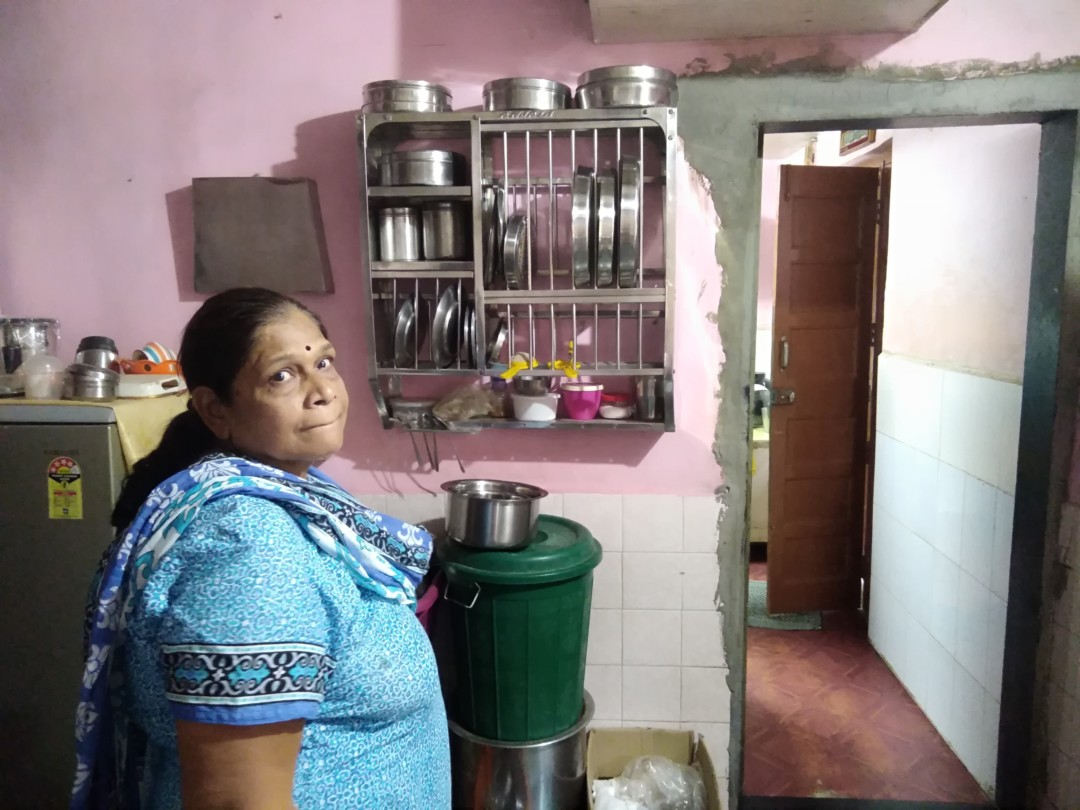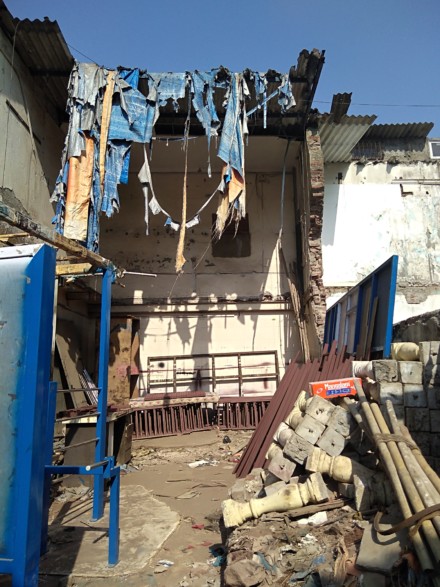15 October 2016
Mumbai, India
Bhupendra Veera
Profession
Community
Motive
Exposure of illegal activity
Political dissent


Adolfo Olivas


Ahmed Divela


Amit Jethwa


Artan Cuku


Babita Deokaran


Bayo Ohu


Berta Cáceres


Bhupendra Veera


Bill Kayong


Boris Nemtsov


Boško Buha


Chai Boonthonglek


Charl Kinnear


Chut Wutty


Chynybek Aliev


Cihan Hayirsevener


Daphne Caruana Galizia


Darío Fernández


Derk Wiersum


Deyda Hydara


Édgar Quintero


Edmore Ndou


Edwin Dagua


Federico Del Prete


Fernando Villavicencio


Gezahegn Gebremeskel


Gilles Cistac


Habibur Mondal


Igor Alexandrov


Jacob Juma


Ján Kuciak


Javier Valdez


Joannah Stutchbury


José Ángel Flores


Jules Koum Koum


Kem Ley


Luis Marroquín


Mahamudo Amurane


Marcelo Rivera


María Elena Ferral Hernández


Marielle Franco


Milan Pantić


Milan Vukelić


Muhammad Khan


Nelson García


Nihal Perera


Oliver Ivanović


Orel Sambrano


Perween Rahman


Peter R. de Vries


Rajendra Singh


Salim Kancil


Sandeep Sharma


Sikhosiphi Radebe


Slaviša Krunić


Soe Moe Tun


Victor Mabunda


Virgil Săhleanu


Wayne Lotter


Yuniol Ramírez


Zezico Guajajara
15 October 2016
Mumbai, India
Profession
Community
Motive
Exposure of illegal activity
Political dissent
At around 9 p.m. on 15 October 2016, Bhupendra Veera briefly stepped out of his small, ground-floor apartment in a Mumbai suburb and asked the children playing outside to quieten down. It was time for one of his favourite shows on the spiritual television station, Aasta, and he wanted to watch it in peace.
He went to the bedroom, changed into his nightclothes, and sat down to watch television. Veera’s wife was in the kitchen, cooking.
A few minutes later, she went into the bedroom and was stunned to find Veera slumped in his chair, with blood splattered all around him. She had not heard anything unusual, and her husband, who was in his early 60s, had not been suffering from any condition. He was still alive, but barely conscious. His wife rushed him to a nearby hospital, but he died soon after. He died from a bullet wound, the family found out later.
Veera was an activist who had been campaigning against illegal construction and land grabs in the city’s Kalina area. Mumbai is a land-starved city. With over 12 million inhabitants, it is among the most densely populated urban areas in the world. Its civic infrastructure is lacking, and housing prices are among the highest in India. The local real-estate sector is known to be corrupt. Politicians, various officials and police authorities are all believed to be complicit.
Veera’s family suspected that the murder had been arranged by Razzak Khan, an influential local figure and former elected representative of the Indian National Congress. Khan had been implicated in illicit activities. ‘He [Khan] used to have political support, [and] connections with civic authorities and the police,’ said Sudhir Gala, Veera’s son-in-law. ‘He was notorious. Everyone knew about his criminal activities.’
Two days after Veera’s death, police arrested Khan and his son Amjad for plotting and executing Veera’s murder. In January 2017, the crime branch of the Mumbai police filed a charge sheet against the two men in the Mumbai Sessions Court. At the time of writing, however, the trial had not yet started, and the men were still out on bail.
In 2010, Veera began his campaign against the local ‘land mafia’ – in particular, the Khans – following a personal property dispute. Veera’s family said the Khans had taken over their warehouse in the neighbourhood and claimed it as their own. The two families were fighting the matter out in court at the time of Veera’s death.
As Veera started to connect with more victims of alleged land grabs, what had started as a personal matter soon took on broader social relevance. Veera’s son-in-law said the Khans had a history of nefarious dealings in the area. ‘How do you stop them and get justice for everyone?’ asked Gala. ‘[Veera] started raising his voice against these illegalities.’
Veera used India’s Right To Information (RTI) Act to access information about land and property in the area. Passed in 2005, the act allows citizens to petition any government body for information. Since it was passed into law, the Act has become a powerful tool for exposing corruption and promoting transparency. Various reports claim that Veera’s RTI queries ran into the thousands. In Veera’s home, stacks of papers lie in trunks and cupboards gathering dust.
‘He was not an activist at first,’ said Clarence Pinto, a fellow activist in the area who had known Veera for three years. ‘But circumstances placed him in that situation. He started knocking on the doors of various authorities. If you are very persistent, then the authorities have to act.’ Veera persisted in appealing to the authorities, including the Lokayukta – the state’s anti-corruption ombudsman. His efforts began to pay off, and the ombudsman ordered the demolition of several illegal structures put up by the Khans.
Veera’s family and fellow activists believe this was what led to his killing. After the murder, his son claimed that Veera had also unearthed information about illegal water connections arranged by the Khans in the neighbourhood.
According to the police charge sheet filed in January 2017, Amjad Khan arrived at Veera’s home, shot him and fled. The neighbours were attending a wedding, so there were no eyewitnesses. In his bail application, Razzak Khan denied any involvement in the offence. Amjad Khan’s wife also claims that both her husband and her father-in-law are innocent.
Before his death, Veera had approached the police several times requesting protection; he complained of threats received from the Khans and various officials.
Fellow resident Raymond Galbano said that one of his properties had also been captured by the Khans. They are alleged to have evicted Galbano’s tenant and installed another tenant of their own. Galbano was advised to approach Veera for help. After Veera’s murder, the Galbanos were among those who lobbied the office of the higher police authorities; they demanded speedy and just action, and accused the police of being apathetic and ineffective.

Bhupendra Veera's wife in the kitchen of their home. He was assassinated metres from where she is seen standing.

Demolished parts of an illegal construction in the neighbourhood
‘People were scared after this happened. So many people have been cheated but they don’t want to come forward,’ said Gorettie Galbano, Raymond’s wife. ‘Two years have passed and the perpetrators have not been brought to justice.’
In the days after Veera’s death, groups of activists approached the chief of the Municipal Corporation of Greater Mumbai – the city’s civic body – seeking action against the land disputes, and accusing the corporation and police of neglecting citizens’ complaints.
‘When there are “heavyweight” people with money and power, the police bend to them,’ said Aftab Siddique, a civic activist who was part of the protests. ‘We submitted a lot of documents showing how land grabbing occurs in this Kalina-Vakola area. We told the authorities that if they had done their job, then this would not have happened.’
Veera was one of a tribe of activists seeking to take on the local mafia driving illegal construction in his neighbourhood. It was his relentless campaigning that was believed to have earned him the ire of the Khans. One politician claimed that Veera had been using the RTI Act to blackmail others, but activists strongly rejected this allegation, and Veera’s son threatened to file a defamation suit against the politician.
Veera’s family is frustrated by the delay in the legal proceedings, but they continue to hope for justice. Though his murder sent ripples of fear through the community, many continue their activism work undeterred. ‘We get threats every day,’ said Pinto. ‘But if you come together and fight, then those who are in the wrong will fear you.’


20 July 2010
Gandhinagar, India
Amit Jethwa


21 June 2016
Sarawak, Malaysia
Bill Kayong


11 February 2015
Klong Sai Pattana, Thailand
Chai Boonthonglek


26 April 2012
Koh Kong, Cambodia
Chut Wutty


5 May 2004
Bishkek, Kyrgyzstan
Chynybek Aliev


20 August 2000
Dhaka, Bangladesh
Habibur Mondal


10 July 2016
Phnom Penh, Cambodia
Kem Ley


16 October 2018
Haripur, Pakistan
Muhammad Khan


5 July 2013
Deraniyagala, Sri Lanka
Nihal Perera


13 March 2013
Karachi, Pakistan
Perween Rahman


19 June 2018
India
Rajendra Singh


26 September 2015
Selok Awar-Awar, East Java, Indonesia
Salim Kancil


24 March 2018
Bhind, Madhya Pradesh, India
Sandeep Sharma


13 December 2016
Monywa, Myanmar
Soe Moe Tun